In the blue corner, weighing in at six (possibly seven?) novels, seven novellas, and two TV series, the Savior of HBO, Maester of Dragons, our challenger…Game of Thrones! And in the red corner, weighing in at two novels, over thirty movies, and an incalculable cultural impact, the White Rabbit of Writing, the Mad Hatter of Literature, our undefeated champion…Alice’s Adventures in Wonderland!
Welcome back to the Wonderland Arena for another round of Battle of the IPs. With House of the Dragon wrapping up Season Two this weekend, we thought it was the perfect time to pit George R.R. Martin’s Game of Thrones against Lewis Carroll’s iconic Alice’s Adventures in Wonderland. I’m stepping in for Jared Hoffman for this article. He left his blog cave to research Alice in Wonderland botanical gardens and hasn’t been heard from since. Maybe he followed a White Rabbit down a rabbit hole? Maybe he got lost on the 5. We’ll eventually look for him, but the show must go on, and we have quite the show for you.
Game of Thrones is arguably the biggest cultural phenomenon of the 21st century outside of the Marvel Cinematic Universe. The HBO series, created by David Benioff and D.B. Weiss, became one of the last examples of appointment television with its gripping character drama, cinematic spectacle, and stunning, and often devastating, twists. The show's popularity jumpstarted sales and interest in Martin’s canon. Through the first six seasons, Game of Thrones was considered the pinnacle of Peak TV, a rare combination of quality and popularity. But then the White Walkers descended on the North, and everything burned like King’s Landing under dragonfire. The eighth and final season suffered widespread ridicule and hatred for its rushed plotting, shoddy character work, and lazy ending. Plus, there’s still the issue of George R.R. Martin’s long-awaited and increasingly unlikely seventh novel. The IP has risen from the ashes somewhat with the positive reception of the sequel series House of the Dragon, but scars still remain. Game of Thrones is undoubtedly a formidable challenger to Alice’s Adventures in Wonderland, but let's see if our undefeated champ can come out victorious yet again.
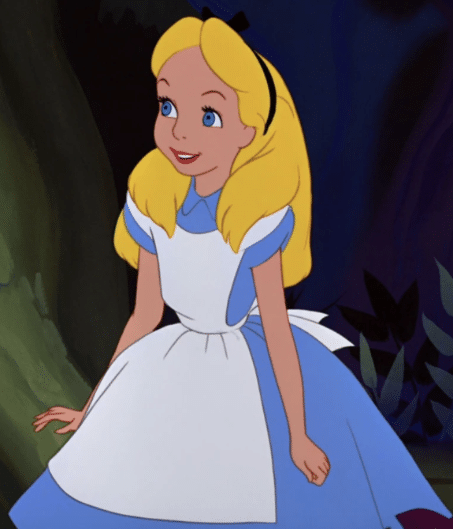

Alice’s Adventures in Wonderland
From commercials to movies to memes, references to Lewis Carroll’s masterpiece can be found in every nook and cranny of our society. We often say that Alice isn’t part of pop culture; it is pop culture. It’s reached the point of saturation where people can make a reference using something from Alice in Wonderland but not even know the source of that reference. In 2006, Alice in Wonderland was named an icon of Britain in a government-run poll alongside Stonehenge, London’s double-decker buses, and tea. When Brits hold you in the same esteem as tea, you know you’ve stuck in the public consciousness.
Game of Thrones
Back in the days of Blockbuster and dial-up internet, there was the concept of a “water cooler show.” The idea was that everyone would watch the show the night it aired and then discuss it the next day at work around the water cooler. Seinfeld was a water cooler show. Friends was another. However, the proliferation of streaming services, niche programming, and all episodes of a season being released at once have resulted in a steep decline in appointment TV. Plus, no one uses water coolers anymore. Then, Game of Thrones happened. Every Sunday night, groups of friends and families would watch the new episode, and if you didn’t, you had to spend Monday in isolation for fear of encountering spoilers. The internet exploded with commentary on every granular piece of each episode. Games of Thrones fundamentally changed, at least for a short time, how people watched and talked about a television show, even if the tone of that discourse turned sour by the end.
Winner: Alice in Wonderland - It was a tight round. Game of Thrones got in some good jabs, but Alice held her own. Game of Thrones has helped define the entertainment landscape in the 21st century. It helped spark a broader interest in the fantasy genre, and episodes like The Rains of Castamere (the Red Wedding episode) have become essential cultural touchstones. But Alice has been defining culture for over 150 years. Its reach is both more extended and more pervasive. Plus, I can’t overstate how much the British must love something if they compare it to tea. Round - Alice.
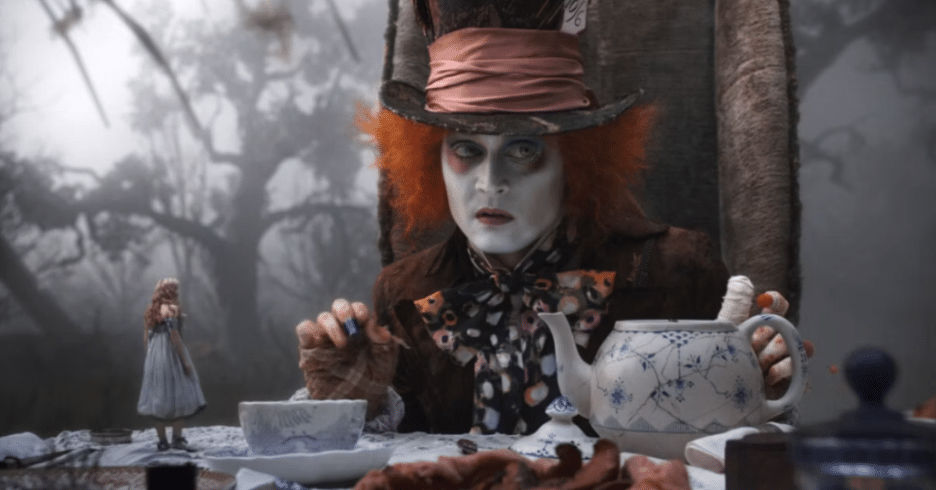
Alice’s Adventures in Wonderland
Alice was published to rave reviews in 1865. Even the harshest critic of all, the notoriously unamused Queen Victoria, was a fan. Over the last century and a half, critical appraisal of Alice’s Adventures in Wonderland has been similarly positive. It has been credited with fundamentally changing the shape of entertainment. A 2020 review in Time said, “The book changed young people's literature. It helped to replace stiff Victorian didacticism with a looser, sillier, nonsense style that reverberated through the works of language-loving 20th-century authors…” It is considered a forerunner of other iconic works by authors as diverse as James Joyce and Dr. Suess. Walt Disney said, “No story in English literature has intrigued me more…”
Game of Thrones
Game of Thrones is routinely cited as one of the best television series ever, alongside The Sopranos, The Wire, and Breaking Bad. The performances, plotting, and production values were all lauded as some of the best in the medium. The series was nominated for over seven hundred awards and won 272, including 59 Primetime Emmys. But then came season seven. The show’s quality fell off a cliff, and the ending was routinely considered one of TV’s worst. The series was also plagued with criticism over its depiction of violence against women and sexual violence.
Winner: Alice in Wonderland - Round Two was all Alice. Few other works have been showered with as much critical adulation as Lewis Carroll’s tale, and even fewer have had such a profound impact on storytelling. Game of Thrones may be one of the greatest shows ever, but the complete failure to stick the landing makes this an easy call.
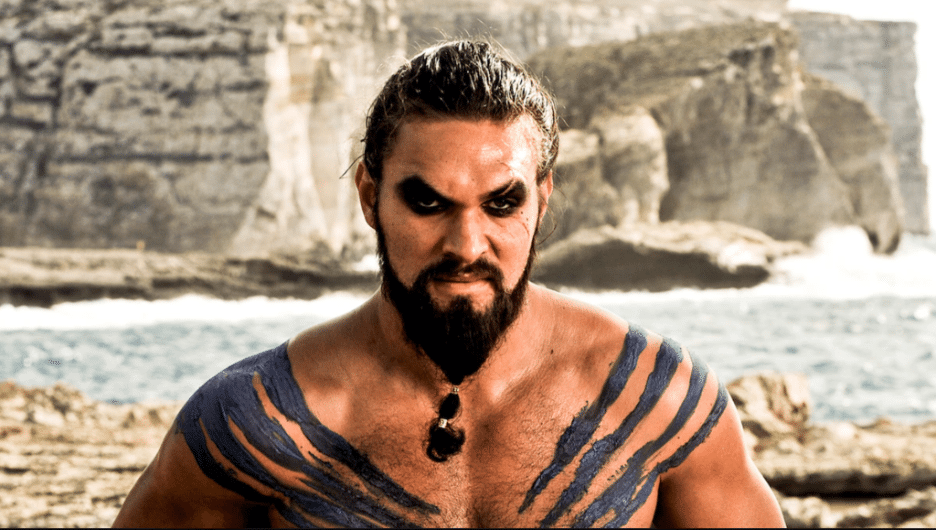
Alice’s Adventures in Wonderland
“Down the rabbit hole.” “Off with their heads!” “Chortle.” “Galumph.” These are just a few of the many words and phrases invented by Lewis Carroll in his Alice works. His additions to the Western lexicon are countless, and people use and understand terms from Alice without ever having read the books or seen the movies.
Game of Thrones
You may not think so at first glance, but George R.R. Martin’s books and the HBO series have significantly impacted language in their relatively short time in the public consciousness. The show’s practice of pairing exposition with sex scenes gave rise to the term “sexposition” and, perhaps not so ironically, the series has inspired many parents to be, with Daenerys and Khaleesi becoming popular names for girls. Furthermore, Game of Thrones has invented entire languages. Dothraki and High Valryian are two languages created for the show that you can actually learn to speak, much like Klingon from Star Trek or Elvish from The Lord of the Rings.
Winner: Alice in Wonderland - Game of Thrones came out swinging to make for a close Round Three, but Alice ultimately prevailed. Sexposition and inventing new languages aside, if you told somebody you named your child Daenerys, they would have had to have watched the series to understand the reference. However, if you told someone you went down a Game of Thrones “rabbit hole,” they would know exactly what you meant without knowing Alice in Wonderland. That is the bar to clear for this category - an impact on language so thorough and profound that the terms have been disconnected from its original source material.
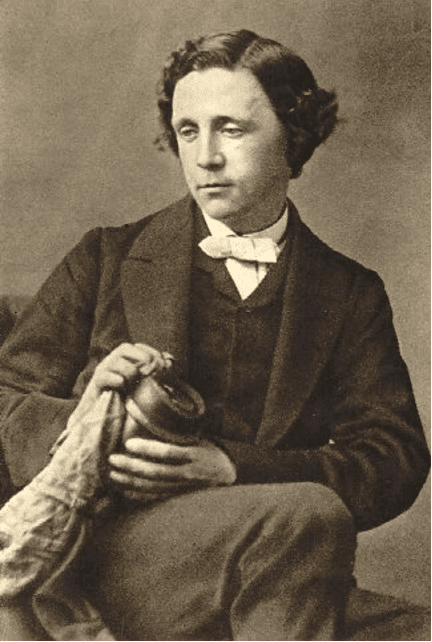
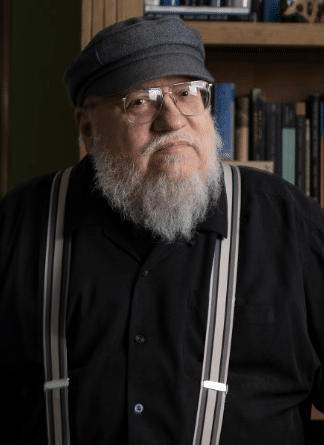
Alice in Wonderland
Originally published in November 1865, Lewis Carroll’s Alice’s Adventures in Wonderland has never been out of print and has been translated into 174 languages. It has sold over 100 million copies across 300 editions. And we’re not counting the many bestselling books based on Alice in Wonderland, like Frank Beddor’s The Looking Glass Wars.
Game of Thrones
George R.R. Martin’s A Song of Ice and Fire series has sold an estimated 90 million copies since the initial publication of A Game of Thrones in 1996 and has been translated into 47 languages. There have also been several popular novellas and compendiums set within Martin’s Westeros, including The Princess and the Queen, which is the basis for House of the Dragon.
Winner: Alice in Wonderland—Alice handily takes Round Four on sheer numbers. A Song of Ice and Fire is one of the most successful book series of all time, but 100 million is more than 90 million. Plus, Martin’s book sales are spread out over six books, while Lewis Carroll was much more efficient—one book, 100 million.
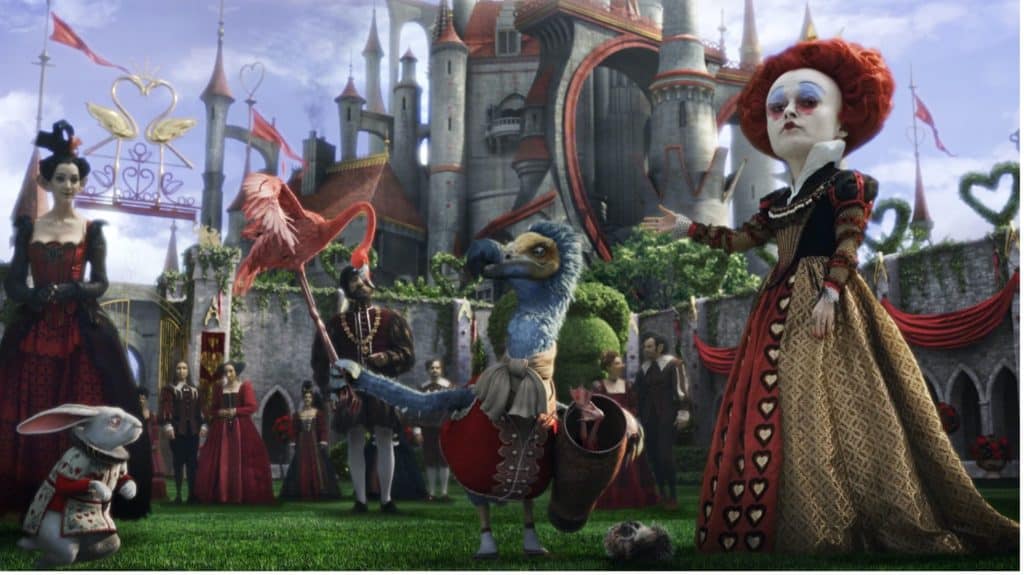
This category was formerly titled “Box Office Success,” but given that Game of Thrones is a TV show and multimedia content machine, we decided to take a holistic look at the revenue-generating power of both franchises.
Alice in Wonderland
It’s challenging to find information on book revenues from the Victorian Era, but Lewis Carroll did earn substantial sums from his opus and was an early adopter of merchandising. The Alice in Wonderland movies have grossed over $1 billion, the bulk of that coming from Tim Burton’s 2010 eponymous take on Wonderland. Disney’s Alice theme park rides and experiences generate additional revenue. It is also important to note that Alice in Wonderland is in the public domain, meaning that creatives can use the story and characters for free.
Game of Thrones
A 2022 Bloomberg article estimated that Game of Thrones earned HBO $4.4 billion, while other sources pegged the amount to $5-7 billion. Regardless of the specific figure, Game of Thrones is HBO’s most important property, and its successful continuation is central to the fortunes of the Warner Bros./Discovery merger. We couldn’t find figures on the revenue the books or merchandise generate, but George R.R. Martin’s annual take home is estimated at $25 between rights payments from the TV shows and book sales.
Winner: Game of Thrones - It might have taken five rounds but Game of Thrones finally scores a win against a tiring Alice. It’s difficult to pinpoint exact figures, but $4.4 billion is more than $1 billion. Furthermore, Alice in Wonderland has never been essential to this success as a single corporate entity as Game of Thrones. Warner Bros. Discovery has been beset by P.R. and performance issues since the merger, and they need House of the Dragon and the subsequent spin-off content to remain popular.
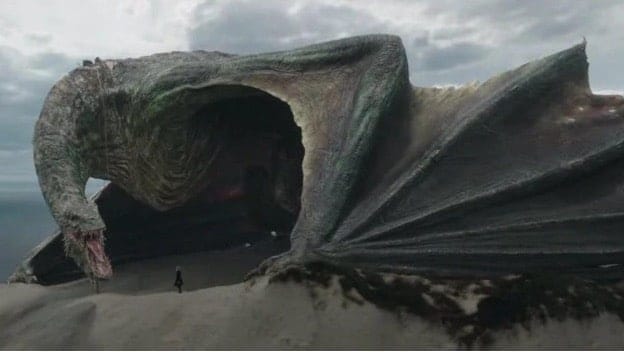
Alice in Wonderland
The creatures Lewis Carroll created for Alice in Wonderland and Through the Looking-Glass range from the cute to the carnivorous. There’s the fearsome Jabberwock, the ravenous Bandersnatch, the enigmatic Cheshire Cat, and the delightfully ridiculous Jub-Jub bird. Wonderland features a cornucopia of creatures that make for perfect children’s toys or be aged up into frightening adversaries like the Bandersnatch or Jabberwock in Tim Burton’s Alice in Wonderland.
Game of Thrones
Dragons. Lots of them. The HBO series did not have an overall high volume of dragons, but when they did arrive…boy, did they do some damage. From immolating the slave driver of the Unsullied to ripping through the Lannister lines, Dany’s dragons were responsible for some of the show’s most memorable moments. In House of the Dragon, the winged, fire-breathing beasts take center stage, delivering on a promise over a decade in the making. The visual effects and choreography are stunning, the three-way aerial battle between Aegon, Aemond, and Rhaenys being a particular highlight.
Winner: Game of Thrones - Game of Thrones finishes strong and takes the last round on the strength of their dragons. It can be argued that the creatures in Alice in Wonderland are more varied and more creative, but…the Westeros dragons are so damn cool. Their depiction and utilization in the series make for a fabulous spectacle, and their importance to the characters renders them an integral part of the show’s emotional core.
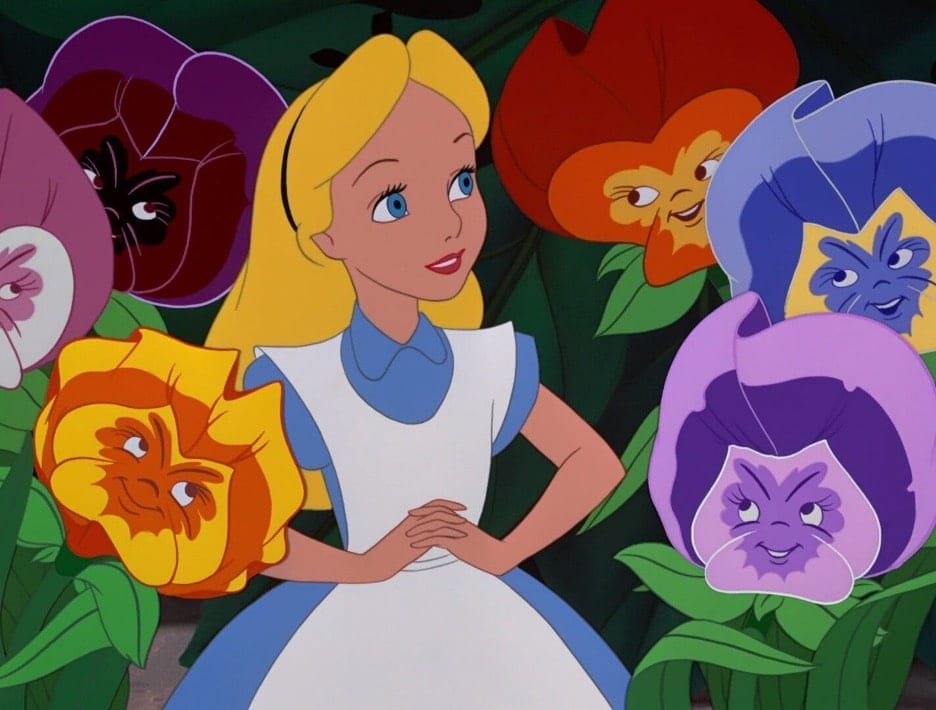
Ding! Ding! Ding! At the end of six well-fought rounds, Alice in Wonderland retains its belt as the heavyweight champion of the IPs. Game of Thrones fought admirably, but the cumulative power and variety of the Alice brand proved too much to overcome. Look, Game of Thrones is one of the most impactful IPs of the 21st century and one of the best television shows ever. It has had an enormous impact on popular culture. But while GoT came to the fore in 2011, Alice in Wonderland has been a cultural behemoth for over 150 years. Game of Thrones just can’t match the scope and depth of Alice’s influence. Maybe in another hundred years, we’ll be having a different conversation, but right now, Alice’s Adventures in Wonderland reigns supreme as the undefeated champion.
See which other cultural icons Alice in Wonderland has bested in our ongoing series - Battle of the IPs.

An itinerant storyteller, John Drain attended the University of Edinburgh before studying film at DePaul University in Chicago and later earned an MFA in Screenwriting from the American Film Institute Conservatory. John focuses on writing mysteries and thrillers featuring characters who are thrown into the deep end of the pool and struggle to just keep their heads above water. His work has been recognized by the Academy Nicholls Fellowship, the Austin Film Festival, ScreenCraft, Cinestory, and the Montreal Independent Film Festival. In a previous life, John created and produced theme park attractions across the globe for a wide variety of audiences. John keeps busy in his spare time with three Dungeons and Dragons campaigns and a seemingly never-ending stack of medieval history books.